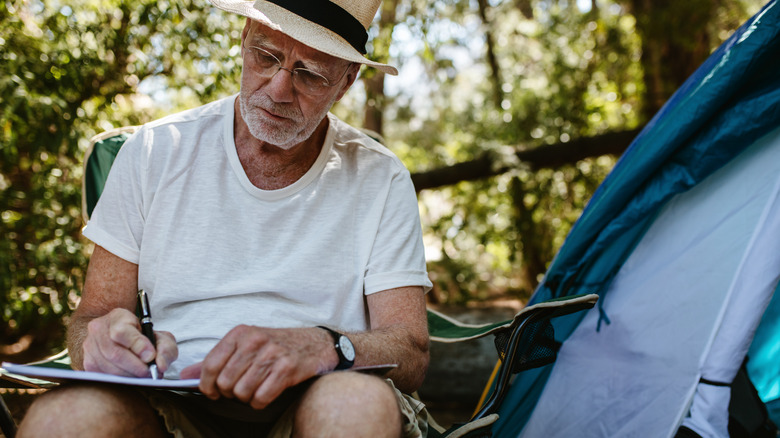California Campers Are Hailing A New Law Expanding Camping On Ranches And Farms
There's no gainsaying that California has always been one of the best places for people to go camping. The attending problem, however, is that getting an affordable but desirable campsite can be quite difficult. Apart from the fact that public campgrounds get booked far in advance, private and small landowners are also affected by bottleneck regulations and red tape. Fortunately, things are about to take a better turn with the signing of Assembly Bill 518 by Governor Gavin Newson. This new law will give people the opportunity to camp on working ranches and farms, thereby expanding camping access for Californians and visitors alike.
This expansion means that campers now have more choice available, as places that were once off-limits are about to become accessible overnight. Imagine being able to pitch your tent in a quiet vineyard in Paso Robles or on a ranch near the Sierras; those are part of the benefits campers are about to enjoy. Indeed, campers may now be able to avoid crowded campsites and parks with this off-the-beaten-path opportunity. As one policy advocate, Jazzari T. Taylor, put it: "AB 518 will help break down barriers to camping and open the door for more Californians to build lasting connections with nature." There are benefits for locals too, as farmers and ranchers can now earn additional income and local businesses can enjoy more patronage from nature-loving visitors.
Understanding what the AB 518 law really does
At its core, AB 518 lets counties opt in to a simpler set of camping rules for private land. The law will bring about a new kind of campground called Low-Impact Camping Areas (LICAs) which will allow landowners to host small-scale campsites with lighter requirements and less costs compared to full-blown commercial campgrounds. Therefore, it offers the chance to escape the expensive and complicated permits that are otherwise necessary under the Special Occupancy Parks Act (SOPA).
As contained in the bill's text, property owners who qualify (typically those who have working land that meets basic zoning and safety standards) can now set up as many as nine campsites and up to four RV sites. Eligible properties are required to be a minimum of two acres with only one campsite allowed per acre. Also, guests are only allowed to stay consecutively for 14 nights and only up to 28 nights in a year. A host or manager has to be available 24 hours a day by phone and safety must be ensured, including adequate waste disposal and fire precautions. At the end of the day, the environment also gets a win, as those rural, idyllic spaces are protected from being sold or developed. Overbooked state parks also get to experience less strain.
How to take advantage of AB 518, and things to note
To take advantage of this development, there are some things you should confirm before booking a campsite. First of all, you should check whether the county you're going to has joined the program because, of course, not all counties will participate right away. By the way, you shouldn't expect to see the same facilities you'd find in big public parks since these private-land sites will be smaller, although they'll likely offer a more peaceful and natural ambience.
Be sure to confirm the host's rules because some sites may have specific policies based on the owner's discretion. And no doubt, being a respectful guest is a very important thing. Remember that these ranches and farms are not theme parks but actual workplaces. This is even more of a reason why you should follow any rules that may have been put in place by the host. As a general rule when you go camping, ensure to follow the leave no trace principle always and take trash away when you're done.


